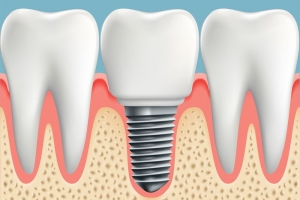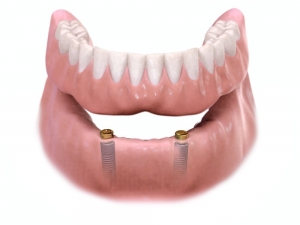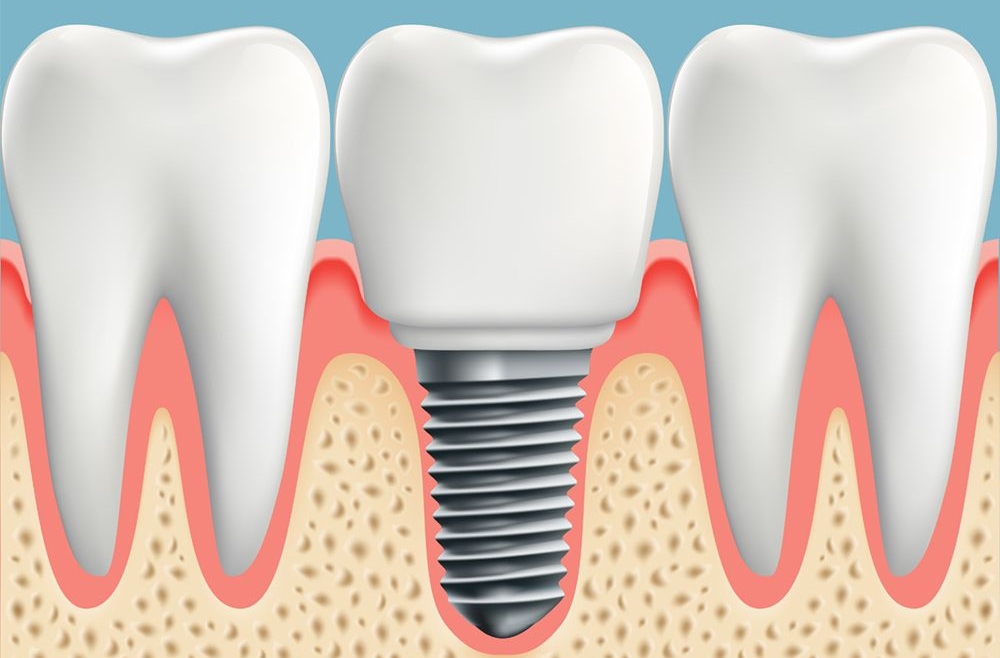Single Tooth Implants

A dental implant provides several advantages over other tooth replacement options. In addition to looking and functioning like a natural tooth, a dental implant replaces a single tooth without sacrificing the health of neighboring teeth. The other common treatment for the loss of a single tooth, a tooth-supported fixed bridge, requires that adjacent teeth be ground down to support the cemented bridge.
Because a dental implant will replace your tooth root, the bone is better preserved. With a bridge, some of the bone that previously surrounded the tooth begins to resorb (deteriorate). Dental implants integrate with your jawbone, helping to keep the bone healthy and intact.
In the long term, a single implant can be more aesthetic and easier to keep clean than a bridge. Gums can recede around a bridge, leaving a visible defect when the metal base or collar of the bridge becomes exposed. Resorbed bone beneath the bridge can lead to an unattractive smile. And, the cement holding the bridge in place can wash out, allowing bacteria to decay the teeth that anchor the bridge.
Overdentures

Dental implants are placed into the bone in a relatively pain-free procedure. The bone and gums will be given time to heal before a denture is secured. Your current denture may be modified to fit over your new dental implants allowing the denture to function and the dental implants to heal.
Your final denture will be secured in one of two ways depending on your treatment. Your doctor will provide you a new overdenture that will “snap” onto your dental implants. If you have chosen a more advanced method, your new overdenture will be permanently secured in place using screws that fit into the dental implants.

